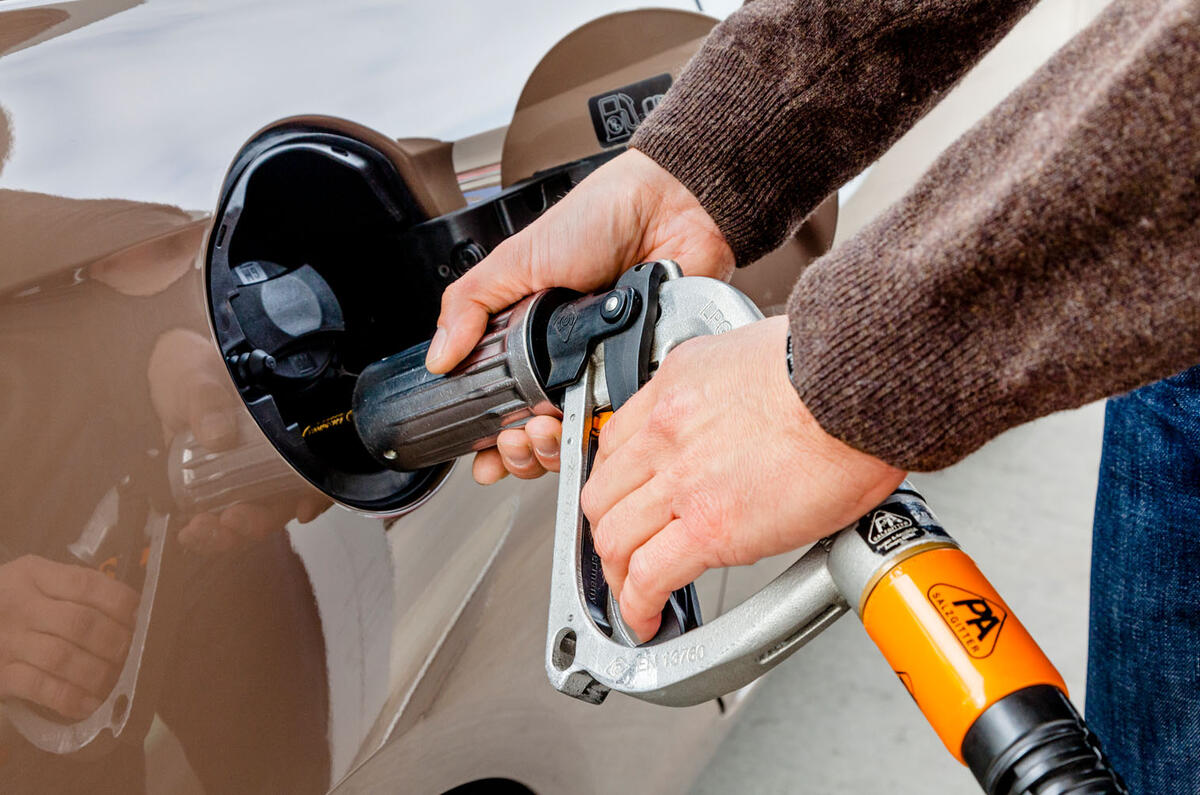Two decades ago, drivers were being encouraged to swap to a cleaner way of fuelling their cars.
Liquefied petroleum gas, or LPG, came with generous tax incentives, slashed running costs and an expanding network of pumps at which you could top up. But now the government grants are long gone, the number of LPG-friendly filling stations is declining, aftermarket conversions are disappearing and just one car maker offers factory-fit LPG systems. Has LPG had its day?
Dacia doesn’t think so. The Romanian car maker, which offers a Bi-Fuel powertrain as an option for its Duster and Sandero, says it’s still good business, making up around 10% of its total sales. “We’re sticking with LPG because it’s perfectly in line with what Dacia customers look for: easy, simple, efficient and affordable motoring,” said a spokesperson.
Despite the lower CO2 and particulate emissions from LPG vehicles, there are no longer concessions in low-emission zones so the savings to tempt drivers need to come from the fuel itself. Dacia says it is 40% cheaper to run a Bi-Fuel model even though the fuel economy is around 20% worse when running on LPG, but this saving will depend entirely on where you are able to fill up.
Website FillLPG maps the UK’s LPG refuelling points, including the latest prices. At the time of going to press the average is 97p per litre compared with £1.35 for unleaded, but sites close to motorways were asking £1.30 a litre. The cheapest is in Nottingham, at 78p – up from 64p in 2018.
However, there are now thought to be around 500 LPG filling stations, compared with nearly 2000 at the peak of the fuel’s popularity. Since companies such as Shell, BP and Morrisons chose to remove their pumps, drivers have had to seek sources off the beaten track – for example, in industrial sites and caravan parks. These are often only open for limited hours, too.
A spokesperson for Liquid Gas UK, the suppliers’ trade association, said: “There are over 70,000 LPG autogas vehicles on the road in the UK today. However, with the government focus on electric vehicles we have seen a decline in the number of conversions. While the number of public refuelling points has reduced, there is still a good spread throughout the UK. It still offers greener and cleaner motoring as a transitional fuel until electric cars or other alternatives are more viable.”
Independent 4x4 specialist Gloucester Land Rover would regularly fit LPG conversion kits, but boss Russ Knight said these types of jobs have declined: “We used to be asked to fit LPG systems all the time, but I can’t remember the last time I saw one.”
He puts its decline down to the improvements in diesel technology: “I think this is because the newer diesels in 4x4s are leagues ahead of the old ones in terms of performance and refinement, so you can have diesel economy without it feeling like a punishment. And the LPG filling stations are disappearing. No one wants to drive miles out of their way to fill up at a caravan park.”
Tom Barnard




Join the debate
Add your comment
https://bulletforce11.pages.dev
https://dogsimulator3d2.pages.dev
https://funnyshooter122.pages.dev
https://gunmayhem111.pages.dev
https://gunmayhem222.pages.dev
https://gunspin12.pages.dev
https://headsarenas12.pages.dev
https://jetpackjoyride12.pages.dev
https://madalinstuntcars211.pages.dev
The main problem is availability, the largest current chain is MFG (was Morrisons forecourt), who have declared they won't have LPG anymore, so have raised the price to £1.29. Independent sales points sell LPG from 68p to £1.09, so it can be worth while (I have 6 local places outside of MFG). To buy a decent EV will cost £45k plus, even second hand is £20k. It cost me £2k to have my existing petrol car converted. When petrol was nearly £2, I was still paying 75p.Don't forget, the government wanted sheeple to buy diesel cars, look what happened there.
Most electricity in the UK is now gas generated (with wind second). So EV cars effectively run on gas generated electricity with consequential transmission/efficiency losses. I have an LPG dual fuel MPV which runs cleaner on LPG but prices locally vary between 75p and £1.56 a litre which is bonkers - the government should do more to promote its use.
In 2023 gas made up 35% whilst wind power 30% and solar was 5%, so your statement of EV cars effectively running on gas generated electricity is rubbish. Even dumber as cars are often charged overnight when the wind percentage is alot higher.